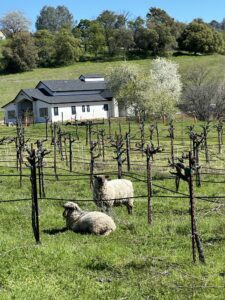Ever wondered about the environmental impact of your favorite wine? Let’s uncork the conversation on sustainability in the wine industry!
First up, let’s talk packaging. Wineries are embracing sustainability by reducing their carbon footprint one bottle at a time. Our friends at Bogle are saying goodbye to excess waste with Element[AL] Wines, a first-of-its-kind brand with aluminum bottles that are shockingly lightweight, infinitely recyclable, and made in the shape of a traditional wine bottle. They say the new environmentally friendly format will shatter expectations about how and when wine can be enjoyed and answer the call-to-action from the wine industry to rethink glass bottles, the largest contributor to wine’s carbon footprint.
 But sustainability isn’t just about the packaging; it’s deeply rooted in the vineyards themselves. Cover crops are like nature’s blanket, protecting soil health and promoting biodiversity. By planting cover crops between vine rows, wineries prevent erosion, enrich soil fertility, and provide habitats for beneficial insects. At Lone Buffalo Vineyards, they employ local sheep to mow between vineyard rows and maintain a cover crop of clover. It’s a win-win for the planet and our palates!
But sustainability isn’t just about the packaging; it’s deeply rooted in the vineyards themselves. Cover crops are like nature’s blanket, protecting soil health and promoting biodiversity. By planting cover crops between vine rows, wineries prevent erosion, enrich soil fertility, and provide habitats for beneficial insects. At Lone Buffalo Vineyards, they employ local sheep to mow between vineyard rows and maintain a cover crop of clover. It’s a win-win for the planet and our palates!
Speaking of growing techniques, vineyards are turning to organic and biodynamic practices. From eschewing synthetic pesticides to harnessing the power of natural compost, these methods prioritize harmony with nature. Not only do they produce healthier grapes, but they also cultivate a deeper connection to the land. El Dorado County’s Narrow Gate Vineyards is a flagship farm for biodynamic farming, the most stringent of organics. Certification requires a healthy integration of crops and livestock, land set aside for biodiversity, and organic certification of not just the grapevines but of the whole property.
Most people do not know that for every gallon of wine produced, 12 gallons of wastewater are created. At Wise Villa, that means 130,000 gallons of wastewater per year! After implementing UV light filtration, evaporation ponds, and membrane bioreactor systems, they launched a search for cutting-edge technologies. Turning to UC Davis and BioFiltro Wastewater Solutions Inc., an efficient filtration system was installed that removes over 98% of particulate waste matter and suspended solids without using chemicals.
So, the next time you raise a glass, especially Earth Day 2024, toast to sustainability in the wine industry.

